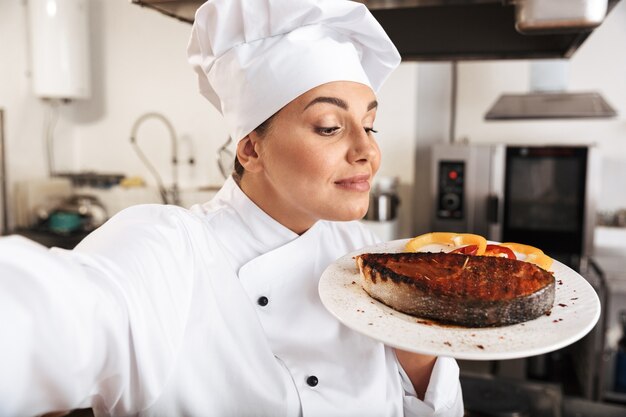Embark on a Sweet Journey: Your Comprehensive Guide to Becoming a Pastry Chef
Imagine a career where your creativity and passion for sweets blend seamlessly, producing artful delights that tantalize taste buds and bring joy to many. Pursuing a career as a pastry chef offers this kind of sweet satisfaction. Whether it's crafting intricate confections or developing mouthwatering pastries, this path promises a mix of creativity, precision, and culinary delight. Let's delve into everything you need to know about becoming a pastry chef.
🎂 Understanding the Role of a Pastry Chef
Pastry chefs are culinary professionals who specialize in creating a wide range of sweet treats, including cakes, cookies, pastries, chocolates, and more. They often work in restaurants, bakeries, hotels, and catering companies, and their responsibilities can vary depending on the work setting.
Key Responsibilities
- Recipe Development: Crafting new and exciting recipes is a fundamental part of a pastry chef's job.
- Baking and Decoration: Creating beautifully decorated cakes and pastries.
- Inventory Management: Ensuring ingredients are well stocked and fresh.
- Team Collaboration: Working with other kitchen staff for smooth operation.
Essential Skills
- Creativity: Essential for developing unique and appealing desserts.
- Attention to Detail: Precision is crucial in measurements and presentation.
- Time Management: Balancing multiple tasks efficiently.
- Hand-Eye Coordination: Important for intricate designs and decoration.
🍰 Steps to Becoming a Pastry Chef
1. Explore Your Passion
Before diving into formal education, immerse yourself in baking as a hobby. Experiment in your own kitchen to understand the basics of baking and develop a solid foundation. This exploration will help you decide if this path aligns with your passion and skills.
2. Obtain Formal Education
While not always required, attending a culinary arts program can provide comprehensive training.
Culinary Schools and Programs
- Culinary Institutes: Offer specialized pastry programs focusing on baking techniques and dessert preparation.
- Community Colleges: Often more affordable, offering certificates or associate degrees in baking and pastry arts.
- Online Courses: Valuable for those needing flexible scheduling, providing foundational knowledge and advanced techniques.
3. Gain Practical Experience
Hands-on experience is invaluable. Start as an apprentice or intern in a bakery or restaurant. This real-world exposure allows you to learn from experienced chefs, hone your skills, and understand the fast-paced environment of professional kitchens.
4. Build a Portfolio
Document your creations with photographs. A well-crafted portfolio showcases your skills and style to potential employers. Include a variety of desserts, highlighting your versatility and creativity.
🥐 Navigating Your Career Path
With foundation knowledge and skills, it's time to consider various career trajectories. The field of pastry arts offers numerous opportunities.
Bakeries and Cafes
Working in a local bakery or cafe allows you to specialize in artisan bread, pastries, and cakes, providing a cozy and community-centered work environment.
Fine Dining Restaurants
The high-end restaurant scene offers a dynamic setting where pastry chefs can create upscale, innovative desserts that complement the restaurant's cuisine.
Hotels and Resorts
These establishments often feature large-scale operations and buffet-style dining where pastry chefs craft an extensive array of desserts.
Starting Your Own Business
For those with an entrepreneurial spirit, opening a bakery or patisserie offers an opportunity to express your culinary vision fully. This path requires business acumen alongside baking prowess.
🍪 Specializing and Advancing in Your Career
Pastry chefs have the opportunity to specialize and further their careers through various avenues.
Fields of Specialization
- Chocolatier: Focus on creating chocolates and confections.
- Cake Designer: Specialize in creating bespoke decorated cakes for events like weddings.
- Bread Artisan: Expert in crafting specialty and artisan bread.
Continuing Education
Culinary arts is a field of continuous learning. Consider attending workshops, classes, or even mentoring under renowned pastry chefs to expand your skills.
Certification
Earning certification can enhance your credibility. The Certified Pastry Chef credential is recognized in the industry and demonstrates a commitment to the craft.
🍮 Challenges in the Pastry Chef Career
As sweet as it sounds, a career in pastry arts comes with its challenges.
Physical Demands
- Long Hours: Early mornings and late nights are common due to baking timelines and event demands.
- Repetitive Tasks: Physical endurance is needed for repetitive and precise tasks such as kneading dough or decorating pastries.
Competition and Creativity
The need for constant creativity and innovation can be demanding, especially in settings where unique, trend-setting desserts are expected.
🌟 Tips for Success in the Pastry Field
Here are some quick takeaways to help you on your journey to becoming a successful pastry chef:
- Stay Curious: Always seek new trends and techniques to expand your knowledge.
- Network: Build relationships with fellow chefs and industry professionals to open doors to opportunities.
- Balance Creativity with Precision: Find the sweet spot between artistic expression and meticulous execution.
- Practice Consistency: Consistency in flavor and presentation is key to establishing a strong reputation.
🍮 Visual Summary: Path to Becoming a Pastry Chef
Final Thoughts
Embarking on the journey to becoming a pastry chef merges creativity with culinary mastery. This profession offers a unique and rewarding pathway for those who live for the artistry of flavors and presentations. With the right blend of education, experience, and passion, a fulfilling career blending batter and dreams is within your reach. So, lace up those aprons and step into the kitchen; a sweet world of endless possibilities awaits!

Related Topics
- A Comprehensive Guide To Cleaning Jobs
- A Comprehensive Guide To Event Planner Jobs
- A Comprehensive Guide To Graphic Design Jobs
- A Comprehensive Guide To IT Jobs: Exploring Opportunities Within The Tech Space
- A Comprehensive Guide To Journalist Jobs
- A Comprehensive Guide To Kindergarten Teacher Jobs
- A Comprehensive Guide To Librarian Jobs: Opportunities, Requirements, And Potential Earnings
- A Comprehensive Guide To Navigating LinkedIn Jobs
- A Comprehensive Guide To Pharmacy Jobs: An Uncharted Path To a Promising Career
- A Comprehensive Guide To Photographer Jobs
